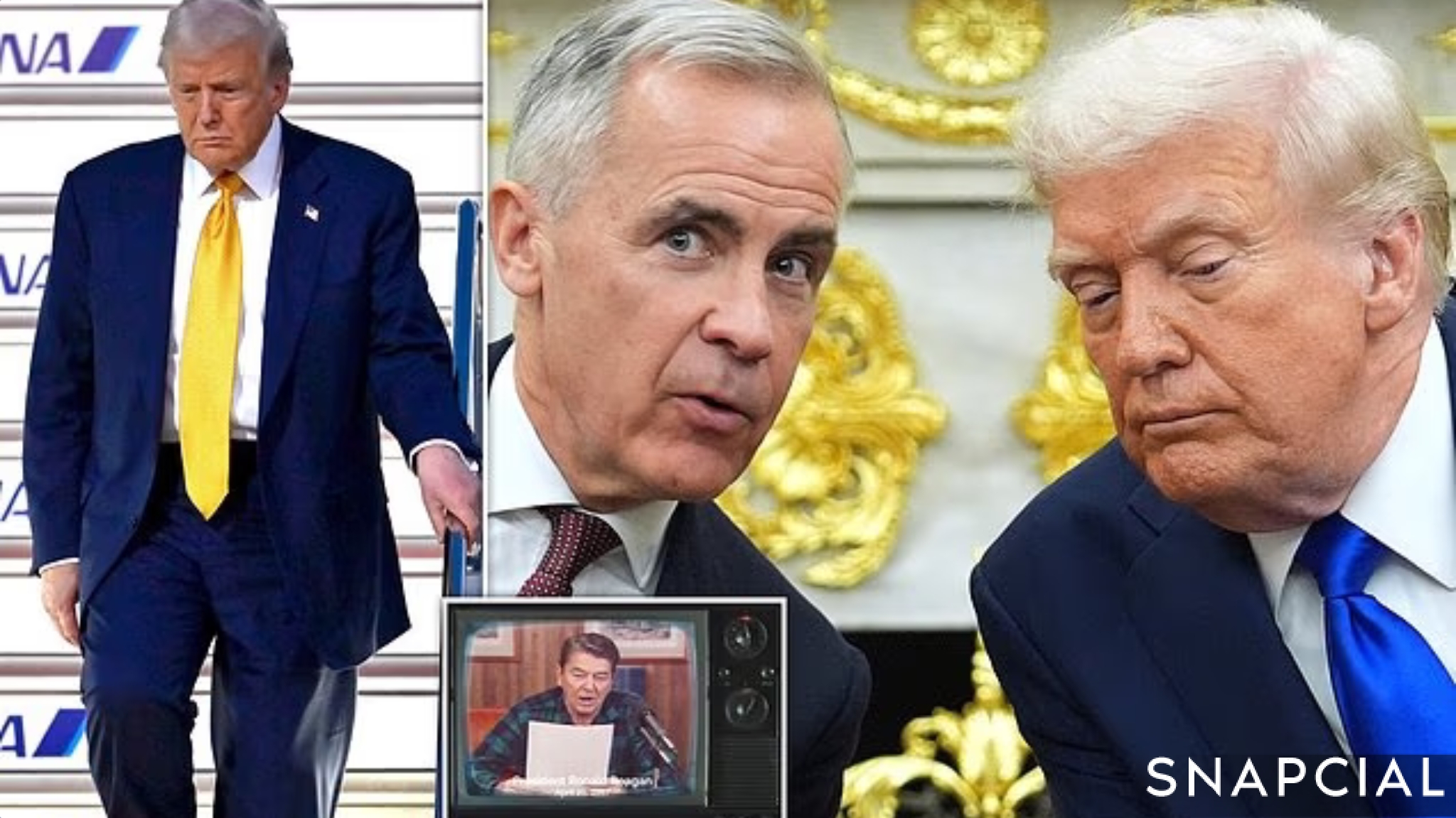NEWS
Carney accuses Trump of being too ’emotional’ after president canceled trade negotiations over Reagan ad

Prime Minister Mark Carney — the former central banker who took office in March 2025 — has sharply criticized President Donald Trump after the U.S. leader abruptly canceled trade negotiations following the airing of a campaign-style advertisement invoking Ronald Reagan.
Carney, who traded the world of central banking for the top office in Ottawa, said the decision was worrying and underscored the dangers of letting personal grievances dictate international economic policy. His comments came as trade negotiators grappled with the fallout of the unexpected move and markets absorbed the new uncertainty. (Prime Minister Canada)
“Economic diplomacy requires steadiness,” Carney said in remarks attributed to his office. “When trade policy becomes reactive to political theater, the long-term costs are borne by workers and businesses — not by the actors in the spotlight.”
What Happened
According to reports, the controversy began after a widely aired ad celebrating Ronald Reagan’s leadership ran on conservative media. Sources say the ad was interpreted by the White House as a critique of President Trump’s temperament. In reaction, Trump ordered aides to halt certain trade discussions tied to groups associated with the ad — a move that stunned negotiators and allies who had spent months building trust and ironing out details. (Media and official accounts of the cancellation were circulating at the time of Carney’s comments.)
Carney’s Concerns: Concrete Risks
As Prime Minister, Carney emphasized the practical consequences of allowing political theatrics to interfere with trade policy:
• Delay and economic pain: Sudden cancellations risk delaying agreements that support jobs in manufacturing, agriculture, and tech.
• Loss of credibility: Partners and investors may hesitate to commit when a negotiating partner’s position can change on a whim.
• Market instability: Policy unpredictability feeds volatility that harms pensions, savers, and businesses making long-range plans.
“As someone who has watched markets and central banks respond to headlines around the world,” Carney added, “consistency matters. Leaders who govern by impulse invite avoidable economic pain.”
Political Pushback and the Bigger Picture
The White House pushed back, framing the pause as a legitimate refusal to reward perceived slights. Trump allies defended the president’s reaction as standing firm against what they described as insider politics. Political analysts noted the episode reveals a broader rift in conservative politics — between traditional Reaganites who prize institutional steadiness and populists who prioritize loyalty and immediate reprisals.
For Carney, however, the question is straightforward: should personal affronts determine the course of national economic policy? He answered no.
“Statesmanship is about tempering emotion with strategy,” Carney said. “When policy swings with every provocation, families and firms pay the price.”
What to Watch Next
- Will trade talks resume with a formal reset, or will the pause harden into a longer setback?
- How will global markets and trading partners react if headline-driven policy moves become more frequent?
- Will Carney’s intervention build pressure for a diplomatic thaw, or deepen partisan divides across the border?
Prime Minister Carney’s intervention put a spotlight on the costs of personality-driven policymaking — and served as a reminder that in an interconnected world, impulses made in one capital can ripple across economies and livelihoods elsewhere.












